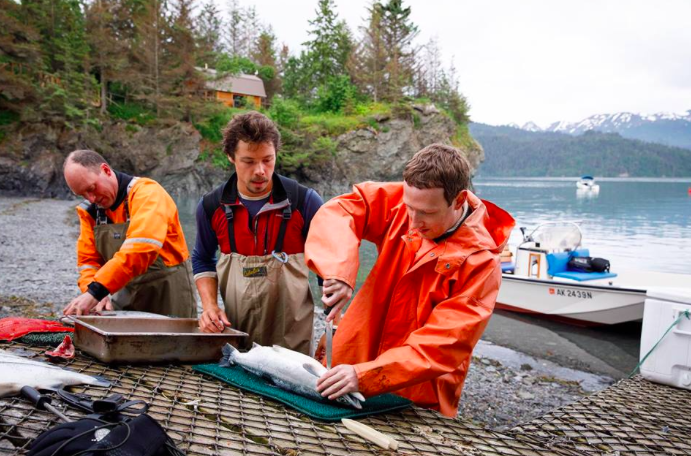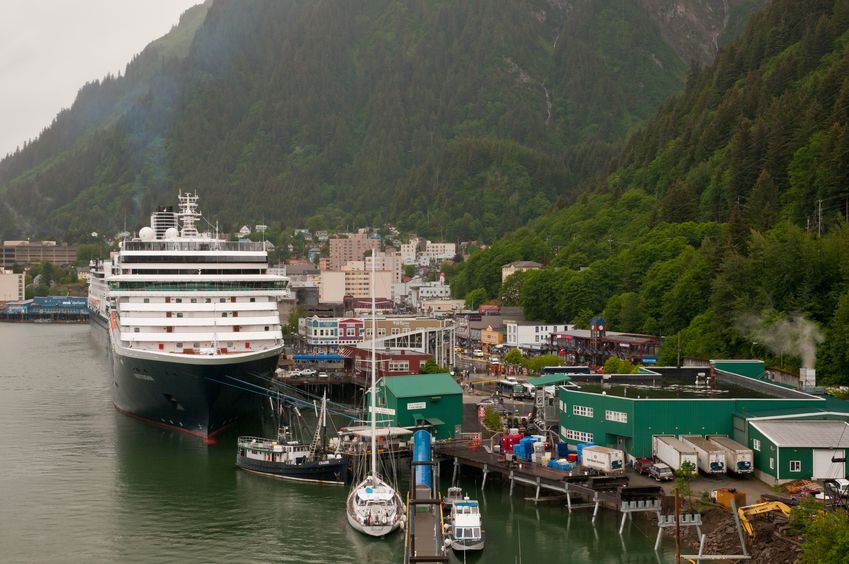
WE WADE INTO FACEBOOK FOUNDER’S ‘BASIC INCOME’ CLAIMS
Alaska, the richest state to ever go broke, may not have any money to promote tourism these days, what with our budget crisis and all.
But with Facebook founder Mark Zuckerberg in the state over the weekend, that may be all the promotion our state can stand. Except he’s sending us the wrong type of people to our state — people who want free money.
Zuckerberg, in his exploratory essay about the Alaska Permanent Fund, may be sending Alaska the kind of person who thinks that our “basic income” is the social safety net.
Zuckerberg spent time in Homer, kayaking, fishing, and observing dip netters gather salmon for their freezers.
He visited Seward for the Fourth of July and watched runners muddy and bloody themselves on Mount Marathon.
And he wrote about it on Facebook, where millions of people will read his words and take them to heart.
“One thing that stood out to us is how different Alaska’s social safety net programs are in a way that provides some good lessons for the rest of our country.
“Alaska has a form of basic income called the Permanent Fund Dividend. Every year, a portion of the oil revenue the state makes is put into a fund. Rather than having the government spend that money, it is returned to Alaskan residents through a yearly dividend that is normally $1000 or more per person. That can be especially meaningful if your family has five or six people.
“This is a novel approach to basic income in a few ways. First, it’s funded by natural resources rather than raising taxes. Second, it comes from conservative principles of smaller government, rather than progressive principles of a larger safety net. This shows basic income is a bipartisan idea.
“Seeing how Alaska put this dividend in place reminded me of a lesson I learned early at Facebook: organizations think profoundly differently when they’re profitable than when they’re in debt. When you’re losing money, your mentality is largely about survival. But when you’re profitable, you’re confident about your future and you look for opportunities to invest and grow further. Alaska’s economy has historically created this winning mentality, which has led to this basic income. That may be a lesson for the rest of the country as well.”
Basic income is a cause that Zuckerberg has adopted as his own, speaking about it at length at his recent speech at Harvard University. This resonates with a certain subset of people. He’s calling it a bipartisan idea that everyone can get behind.
However, it is not an idea everyone embraces. Conservatives and free-market types have issues with the basic-income movement that Zuckerberg is championing.
America already does have a type of basic income program: Entitlements. The government, through taxation, pays for people’s housing, food, medical care, phone service. Taxpayers pay for elder care, disabled care, special needs care, day care. Taxpayers pay for abortions and fertility treatments. Taxpayers pay for sex change operations and tattoo removal. We pay for fresh needles so addicts can stay “healthy.” We shoulder the cost for opioid and heroin overdose prevention.
We even have an earned income tax credit, which means instead of paying taxes, the government gives you money.
The average taxpayer in America pays for government handsomely. In 2016, federal, state and local governments collected $4.9 trillion in taxes, which is:
- $15,202 for each person living in the U.S.
- $39,074 for each household in the U.S.
- 26.5% of the U.S. economy

And yet, we are a nation with $20 trillion in national debt.
Only in a country sliding toward socialism would the government take $15,202 per year from one hand and at the same time give every person a basic income in the other hand and keep running up the credit cards.
Zuckerberg doesn’t explore how such a program as the Alaska Permanent Fund would work in the rest of America. Every state doesn’t have a Trans Alaska Pipeline to tap into in order to create a large sovereign wealth fund to support state government needs and annual cash payments to residents.
How would other states raise that kind of cash? And is Alaska’s dividend program really the model for the rest of the country?
In fact, the average $1,022 dividend that Alaskans have received since 1982 barely pays for the increased cost of fuel, food, and housing in our high-cost part of the world. But millions of people who hang on Zuckerberg’s every word don’t know that. And at least a few of them are packing their cars today, and painting “Alaska or bust!” on their back windows.

A word to the wise: Alaska has the highest unemployment rate in the nation. So $1,000 is not a safety net. It’s a plane ticket out of a land that is, in fact, very unforgiving.


 As one of the most vocal opponents of REAL ID in the Legislature, he ducked the vote, took an excused absence, and then returned the next morning. When asked by a reporter why he was absent, he sheepishly deflected the question.
As one of the most vocal opponents of REAL ID in the Legislature, he ducked the vote, took an excused absence, and then returned the next morning. When asked by a reporter why he was absent, he sheepishly deflected the question.















